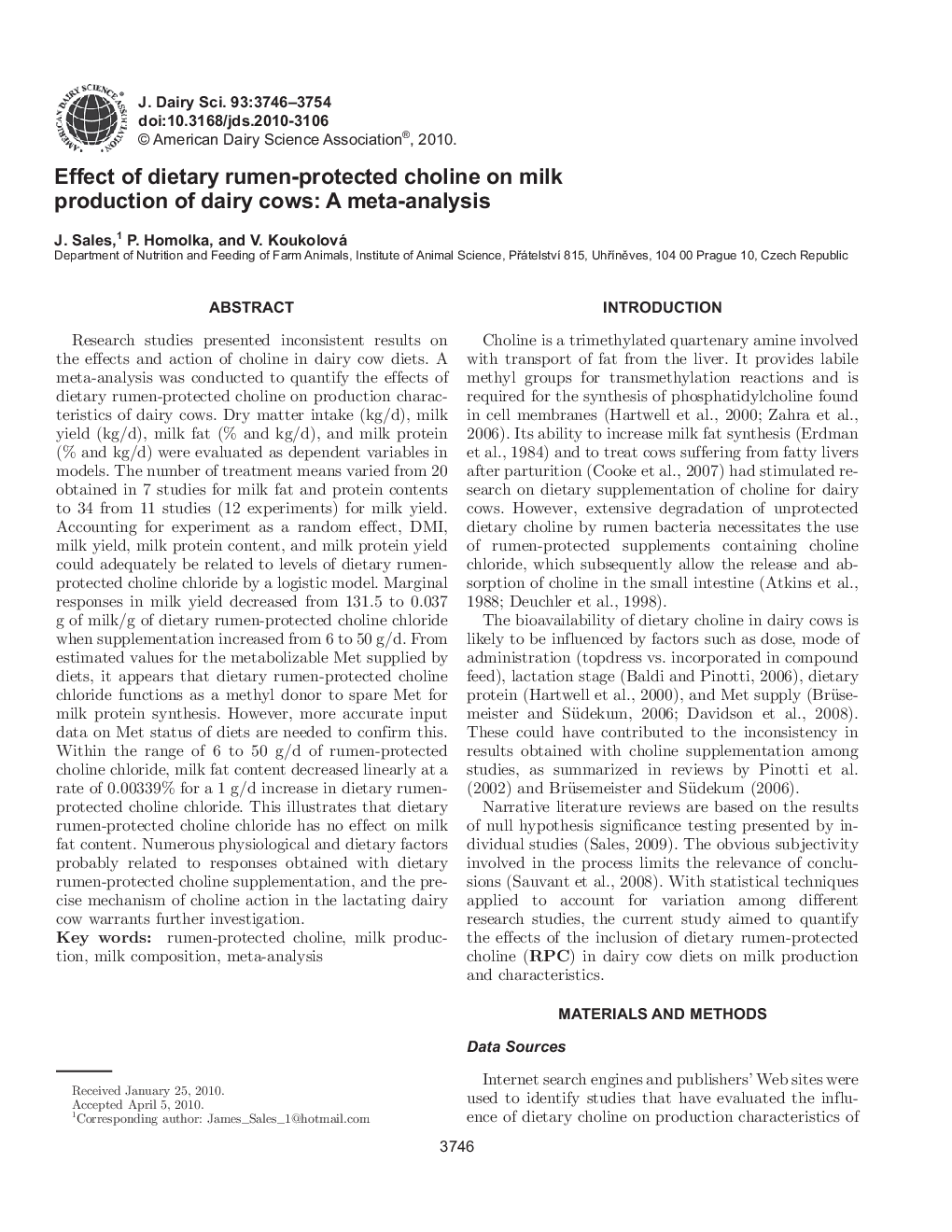| Article ID | Journal | Published Year | Pages | File Type |
|---|---|---|---|---|
| 10980945 | Journal of Dairy Science | 2010 | 9 Pages |
Abstract
Research studies presented inconsistent results on the effects and action of choline in dairy cow diets. A meta-analysis was conducted to quantify the effects of dietary rumen-protected choline on production characteristics of dairy cows. Dry matter intake (kg/d), milk yield (kg/d), milk fat (% and kg/d), and milk protein (% and kg/d) were evaluated as dependent variables in models. The number of treatment means varied from 20 obtained in 7 studies for milk fat and protein contents to 34 from 11 studies (12 experiments) for milk yield. Accounting for experiment as a random effect, DMI, milk yield, milk protein content, and milk protein yield could adequately be related to levels of dietary rumen-protected choline chloride by a logistic model. Marginal responses in milk yield decreased from 131.5 to 0.037Â g of milk/g of dietary rumen-protected choline chloride when supplementation increased from 6 to 50Â g/d. From estimated values for the metabolizable Met supplied by diets, it appears that dietary rumen-protected choline chloride functions as a methyl donor to spare Met for milk protein synthesis. However, more accurate input data on Met status of diets are needed to confirm this. Within the range of 6 to 50Â g/d of rumen-protected choline chloride, milk fat content decreased linearly at a rate of 0.00339% for a 1Â g/d increase in dietary rumen-protected choline chloride. This illustrates that dietary rumen-protected choline chloride has no effect on milk fat content. Numerous physiological and dietary factors probably related to responses obtained with dietary rumen-protected choline supplementation, and the precise mechanism of choline action in the lactating dairy cow warrants further investigation.
Related Topics
Life Sciences
Agricultural and Biological Sciences
Animal Science and Zoology
Authors
J. Sales, P. Homolka, V. Koukolová,
